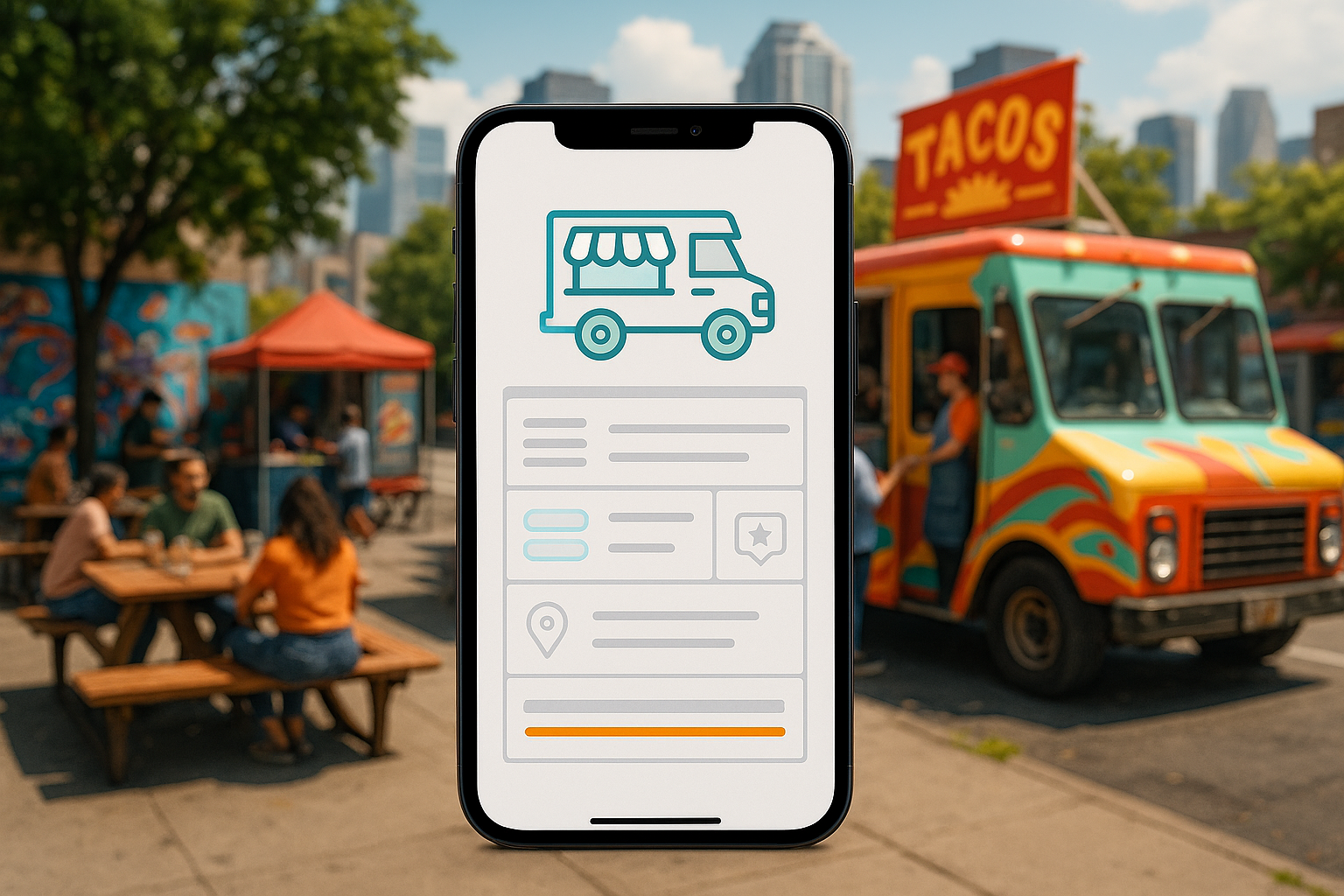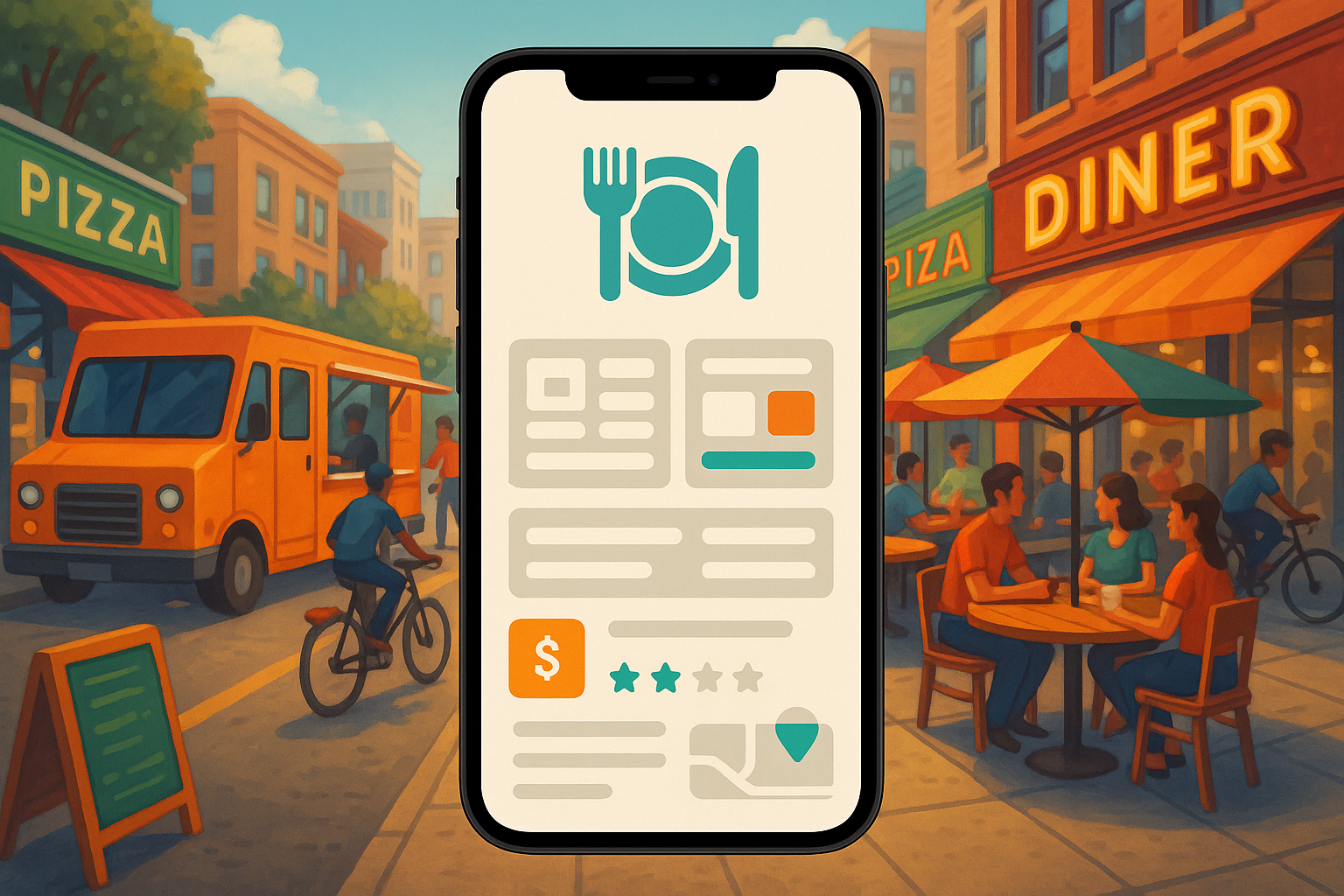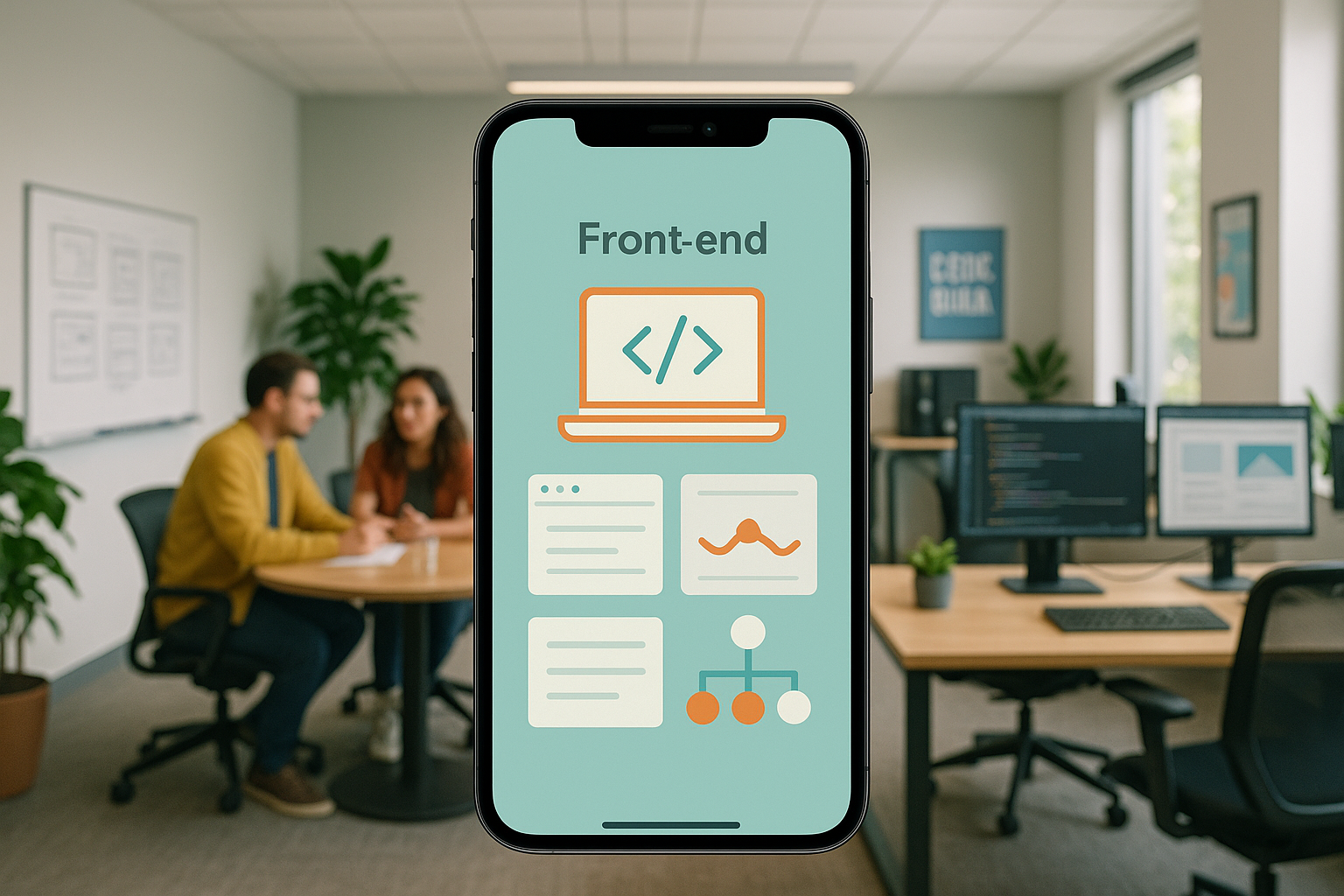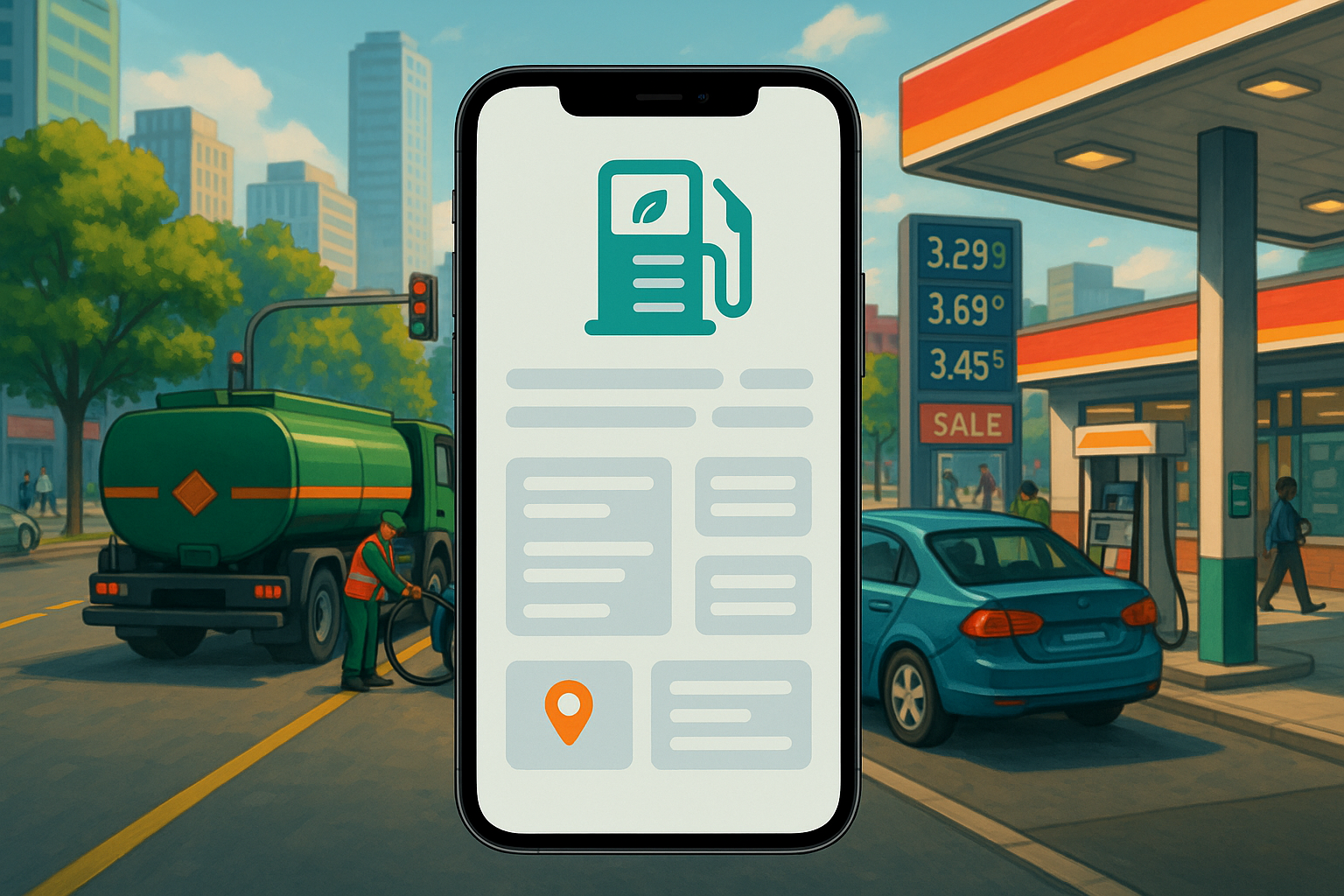Introduction
The food truck industry thrives on agility, passion, and a direct connection with customers. But this mobility, the very essence of a food truck’s appeal, also presents its greatest operational challenge: being a moving target. How do loyal customers find you? How do you manage long lines during the lunch rush? How do you update your menu when you sell out of a popular item? The answer, increasingly, lies in custom mobile technology. A dedicated food truck app can solve these problems, creating a seamless bridge between your kitchen and your customers’ pockets.
However, venturing into app development can feel like navigating a new, unfamiliar city without a map. The process is fraught with technical complexities, significant costs, and strategic decisions that can make or break your investment. Building an app that is not just functional but also secure, user-friendly, and capable of growing your business is no small feat. This is where many passionate food truck owners find themselves stuck, torn between the clear benefits of a mobile app and the daunting reality of its creation.
This comprehensive guide is designed to be your map. We will navigate the world of food truck app development, exploring what these apps are, the features that make them successful, and the significant challenges of trying to build one in-house. We will provide a clear-eyed look at the potential costs and introduce you to top development companies that can help.
As a top US AI-powered app development firm with over 20 years of experience, we at MetaCTO have guided countless businesses through this exact journey. We’ve transformed ambitious ideas into successful, revenue-generating mobile applications. In this article, we’ll share that expertise to demystify the process and show you how a strategic partnership can turn the challenge of app development into a powerful engine for your food truck’s growth.
What is a Food Truck App?
At its core, a food truck app is a dedicated mobile application designed to connect food truck owners with their customers, streamline operations, and drive business growth. It moves beyond a simple static website or social media profile by offering a suite of interactive tools that address the specific, dynamic nature of the food truck business. It serves as a central hub for everything a customer needs to know and everything an owner needs to manage.
For customers, the app is a tool of convenience and engagement. For owners, it’s a powerful command center for sales, marketing, and operations. Let’s explore the essential features that define a modern food truck application.
Essential Features for Customers
A successful food truck app places the customer experience at the forefront, removing friction and adding value at every step.
- Real-Time Location Tracking: This is the single most essential feature. Because a food truck’s location can change daily, the app must provide a real-time, map-based view of where the truck is currently parked. An integrated food truck map allows customers to see if the truck is nearby and get directions instantly.
- Dynamic Menus: Customers can browse the full menu directly within the app. Crucially, this menu is dynamic. The app can provide customers with new menus in real-time. This means you can update it instantly to reflect when a popular item runs out, or spotlight special and limited-time offerings to create a sense of urgency and excitement.
- Seamless Ordering and Scheduling: A food truck app makes it easier for customers to place orders. They can bypass the line by placing an order directly through the app and arriving just as it’s ready. The app can also provide an estimated preparation time, so customers know exactly how long their meal will take. For even greater convenience, the app can allow guests to place same-day orders, schedule orders for a future pickup time that fits their schedule, or even schedule orders in advance.
- Simple and Secure Payments: Integrating a restaurant mobile payment system is critical. This makes it easier for customers to make payments securely within the app. For businesses already using platforms like Square or Clover, the app should connect directly to that existing account to maintain consistency and simplify accounting.
- Loyalty and Rewards Programs: A mobile app is the perfect vehicle for managing loyalty programs. It can connect a rewards program directly with the app, allowing customers to see their loyalty points status with every order. This visibility—seeing how close they are to their next reward—is a powerful incentive that encourages repeat business. The app also allows for posting ads about the loyalty program, further driving engagement.
- Real-Time Updates and Notifications: The app grants the ability to keep guests updated with any changes. Through push notifications, you can instantly alert customers about location changes, special promotions, or menu updates, keeping your truck top-of-mind.
Essential Features for Owners
Behind the scenes, a food truck app provides the owner with powerful tools for management, marketing, and business intelligence.
- Order and Inventory Management: The app can dramatically simplify order management. It provides a clear, digital queue of incoming orders, reducing errors and speeding up service. It can also help with inventory management by tracking which ingredients are used for each sale, making it easy to see which menu items are most popular and when it’s time to restock.
- In-Depth Reporting and Analytics: A food truck mobile app can provide a wealth of data. It can track mobile app downloads, the number of users who create an account, and even when customers tend to download the app. It allows you to monitor key business metrics, such as:
- The number of orders placed through the app versus in-person.
- Individual menu item sales, identifying top performers and underachievers.
- The effectiveness of special promotions or seasonal items by tracking order volume.
- User Engagement Analytics: Beyond sales data, the app can help you understand customer satisfaction in real-time. You can learn how users engage with the app and menu, monitoring how long they spend using the app and whether that time translates into placing an order. This provides invaluable feedback for optimizing the menu and app layout.
- Direct Customer Feedback: The app can be a direct channel for customer communication, allowing them to offer concrete ideas or suggest features they’d like to see, fostering a sense of community and co-creation.
Reasons It Is Difficult to Develop a Food Truck App In-House
While the benefits of a custom app are clear, the path to building one is laden with complexity. Many food truck entrepreneurs, masters of culinary arts and customer service, find that software development is an entirely different and challenging beast. Attempting to build a sophisticated app in-house often leads to unforeseen costs, delays, and a final product that fails to meet expectations. Here are the primary reasons why in-house development is so difficult.
The Sheer Complexity of Modern App Features
A successful food truck app is far more than a digital menu. As we’ve seen, it requires a sophisticated integration of numerous technologies, each presenting its own technical hurdles.
- Real-Time Geolocation: Implementing reliable, real-time location tracking requires expertise in mobile GPS APIs, mapping services like Google Maps or Mapbox, and efficient backend services that can handle constant location updates without draining the user’s battery.
- Secure Payment Gateways: Integrating payments is non-negotiable, and it must be flawless. This involves working with payment processors like Stripe, Square, or Braintree. It requires a deep understanding of PCI compliance to protect sensitive customer financial data, a single breach of which can destroy a business’s reputation.
- Synchronized, Real-Time Systems: Features like live order status tracking, instant menu updates when an item sells out, and push notifications for when an order is ready all rely on real-time communication between the app (the client) and a central server (the backend). Building this requires knowledge of technologies like WebSockets or specialized cloud services, ensuring information is passed instantly and reliably.
- Loyalty and Analytics Engines: A loyalty program isn’t just about counting points. It requires a database and business logic to manage user accounts, track purchases, apply rewards, and handle edge cases. Likewise, the in-depth analytics that provide real business value require a robust backend to collect, process, and present data in a meaningful way.
Developing any one of these features is a project in itself. Integrating them all into a single, cohesive, and bug-free application requires a team of specialized engineers, not a single developer or a food truck owner learning to code on the side.
The Critical Importance of User Experience (UX) and Design
An app can be packed with features, but if it’s confusing or frustrating to use, customers will abandon it. Achieving a great user experience is a discipline in its own right. The provided facts highlight several UX necessities:
- Minimizing clicks to order.
- Creating a simple, intuitive menu layout.
- Adding dietary filters to streamline ordering for guests with restrictions.
These goals sound simple but require professional UI/UX design. It involves user research, wireframing, prototyping, and iterative testing to create a flow that feels effortless. An engineer-led design often results in a clunky interface that, while functional, fails to engage users. Without a delightful experience, your app won’t achieve the adoption needed to deliver a return on investment.
The Imperative of Security and Reliability
In today’s digital world, security cannot be an afterthought. A food truck app handles personal data and financial information, making it a target. The facts rightly call for:
- Reliable user authentication.
- Multi-factor authentication (MFA) for creating profiles and signing in.
- Requiring users to create unique and complex usernames and passwords.
Implementing these security measures correctly is a highly specialized skill. It involves cryptography, secure session management, and protecting against common vulnerabilities. Furthermore, the app must be reliable. It cannot crash during the lunch rush or fail to process a payment. This requires rigorous testing across dozens of different devices and operating system versions, a process known as Quality Assurance (QA). In-house teams often lack the resources and expertise for this level of security hardening and testing.
The Prohibitive Cost and Time Investment
Finally, the financial reality is a major hurdle. As the facts state, developing a food truck app can cost anywhere from $10,000 for a very basic version to over $200,000 for a complex one. This is a significant capital investment for any small business. Attempting it in-house doesn’t eliminate this cost; it just hides it in the form of salaries and, more significantly, the owner’s time—time that is taken away from running the core business.
Given these immense challenges, partnering with a specialized custom mobile app development agency like MetaCTO is not an expense, but a strategic investment. We have the expert teams—strategists, designers, backend engineers, mobile developers, and QA specialists—to navigate this complexity efficiently, ensuring you get a high-quality, secure, and engaging app that achieves your business goals.
Different Types of Food Truck Apps
Food truck apps are not one-size-fits-all. The right feature set depends on your budget, business goals, and customer base. Based on the complexity and cost factors, we can categorize them into three main types: basic, medium, and complex.
Basic Food Truck Apps
A basic app serves as a digital business card and a simple tool for customer communication. It’s the first step into the mobile world, focused on solving the most fundamental problem: helping customers find you and know what you serve.
- Cost Estimate: $10,000 - $20,000
- Core Features:
- Real-Time Location Tracking: The essential map feature showing the truck’s current location.
- Static Menu Display: Customers can browse your menu, but it may require manual updates by the developer rather than being instantly editable by the owner.
- Basic Information: Contact details, hours of operation, and links to social media profiles.
- Push Notifications: The ability to send out simple alerts about location changes or daily specials.
A basic app is a good starting point for trucks on a tight budget or those wanting to test the waters of mobile engagement. However, its lack of ordering and payment functionality limits its ability to directly drive revenue and streamline operations.
Medium-Complexity Food Truck Apps
A medium-complexity app transforms from a simple informational tool into a powerful sales and operational engine. This is the category where most food trucks will find the best balance of investment and return.
- Cost Estimate: $20,000 - $100,000
- Includes all Basic Features, plus:
- Full Online Ordering: Customers can browse the menu, customize items, and place an order directly through the app. This includes allowing same-day orders and scheduled pickups.
- Integrated Secure Payments: Connection to a payment gateway like Square or Clover, allowing for seamless in-app transactions.
- Dynamic Menu Management: An admin panel for the owner to update the menu in real-time, add specials, and mark items as “sold out.”
- Order Status Tracking: After ordering, the app gives the customer an estimated wait time and alerts them when their food is ready.
- Simple User Accounts: Customers can create a free account to save payment information and view order history.
This type of app directly addresses the pain points of long lines and ordering friction, significantly improving the customer experience and increasing throughput during busy periods.
Complex Food Truck Apps
A complex app is a sophisticated business platform designed for growth, retention, and deep customer insight. It leverages advanced features to build a loyal community and optimize every aspect of the business.
- Cost Estimate: $80,000 - $200,000+
- Includes all Medium Features, plus:
- Integrated Loyalty & Rewards Program: A full-featured system where customers earn points for purchases and can track their progress toward rewards within the app.
- Advanced Analytics and Reporting: A comprehensive dashboard for the owner to track sales trends, individual item performance, customer lifetime value, and user engagement metrics within the app.
- AI-Powered Features: This can include advanced capabilities like AI-powered recommendations suggesting menu items based on a user’s order history, or chatbots to answer common questions.
- Advanced Filtering and Search: Sophisticated dietary filters that make it incredibly easy for guests with restrictions to find what they can eat.
- Multi-Truck Support: For businesses with a fleet of food trucks, the app can manage and display locations and menus for all of them.
A complex app is an investment for established food truck brands looking to scale their operations, maximize customer loyalty, and use data-driven insights to gain a competitive edge. The development of such an app almost exclusively requires the expertise of a seasoned development agency.
Cost Estimate for Developing a Food Truck App
Understanding the potential financial investment is a critical step in planning your mobile app strategy. The cost of developing a food truck app is not a single number but a range that depends on a variety of factors. As stated in the facts, your business plan must account for this development cost, which can range from $10,000 to over $200,000.
Let’s break down the primary factors that influence this cost:
- App Complexity and Features: This is the biggest driver of cost. As we outlined in the previous section, adding more features increases the development time and technical complexity. A basic app with a map and menu will cost significantly less than a complex app with online ordering, a rewards program, and AI-powered recommendations.
- The Development Partner: The cost of developing an app depends heavily on the partner you choose. A freelance developer may have a lower hourly rate, but a professional agency like MetaCTO, while a larger investment, brings a full team of experts (strategists, designers, engineers, QA testers), established processes, and accountability that reduces risk and often leads to a better final product and long-term value.
- Developer’s Location and Expertise: Development rates vary significantly around the world. A top-tier firm in the United States will have higher rates than a firm in other regions, but often provides closer communication, deeper market understanding, and more robust legal and intellectual property protections. Expertise also matters; a team that has built similar apps before will work more efficiently than one learning on the job.
Here is a summary of the typical cost ranges based on app complexity:
| App Type | Cost Range | Key Functionality |
|---|---|---|
| Basic App | $10,000 - $20,000 | Location tracking, static menu, basic info. |
| Medium App | $20,000 - $100,000 | Online ordering, payments, dynamic menu, order status. |
| Complex App | $80,000 - $200,000+ | Loyalty programs, advanced analytics, AI features, multi-truck support. |
When planning your budget, it’s essential to think beyond the initial launch. A successful app requires ongoing maintenance, updates for new operating systems, and potentially the addition of new features down the road. Partnering with a firm that can support your app’s entire lifecycle—from idea to launch and beyond—is crucial for long-term success. At MetaCTO, we specialize in not just building, but also growing and evolving apps to ensure they continue to deliver value as your business scales.
Top Food Truck App Development Companies
Choosing the right development partner is the most important decision you’ll make in this process. You need a team with the technical expertise, strategic insight, and a proven track record of delivering high-quality mobile applications. Here are some of the top companies in the space.
1. MetaCTO
As a leading US-based AI-enabled mobile app development agency, we at MetaCTO are uniquely positioned to transform your food truck concept into a market-leading mobile experience. With over 20 years of app development experience and more than 120 successful projects launched, our expertise is your strategic advantage. Our 5-star rating on Clutch is a testament to the trust our clients place in us.
What sets us apart is our comprehensive, partnership-based approach. We handle every step of building your mobile app, ensuring you can go to market faster, slash costs, and get expert guidance from day one. Our process is designed for your success:
- Validate: We don’t just build; we strategize. We can help you launch a Rapid MVP (Minimum Viable Product) in as little as 90 days. This allows you to test your core concept, gather real user feedback, and even secure investor funding on a tight budget and timeline.
- Build: Our team of expert designers and engineers handles the entire development process. We build robust, scalable, and secure applications that deliver a smooth, intuitive experience for your customers and powerful management tools for you.
- Grow & Monetize: Launch is just the beginning. We use analytics and A/B testing to optimize user onboarding, engagement, and retention. We help you build a loyal customer base and implement the most effective app monetization strategies, whether through direct sales, subscriptions for special clubs, or other creative models.
- Evolve: As your business grows, your app must grow with it. We ensure your application evolves, upgrading it with the latest technology, including our specialty in AI development, to keep you competitive in a fast-moving market.
We are not just a vendor; we are your technical partner, dedicated to aligning technology with your business goals to increase profit and valuation.
2. JPLoft
JPLoft is recognized as a leading food truck app development company with a global presence. They have a strong track record and are highly rated by clients and industry evaluators.
- Global Reach: JPLoft has served clients in over 70 countries and has delivered more than 1100 projects.
- Company Size: They have a team of over 130 employees.
- Client Success: The company reports that its clientele has generated over $500M+ in revenue and boasts a 97%+ client retention rate.
- Industry Recognition: JPLoft has received high marks from various platforms:
- Ranked as a #1 Top Web & App Development Company.
- A 4.9 out of 5.0 rating from over 1000 global clients.
- A 5-star rating from Clutch and Tech Giant Google.
- A 5.0-star rating from TopDevelopers.
- Recognized as a top mobile app development company by UpCity and a top-rated company on DesignRush with a 4.9 rating.
JPLoft offers a strong alternative for those looking for a large, globally-focused development partner.
Conclusion
Embarking on the journey of food truck app development is a significant step, but one with the potential to fundamentally transform your business. A well-crafted app can solve your most persistent challenges—from helping customers find you to eliminating long lines and building a dedicated following. We’ve explored the essential features that create a valuable tool for both you and your customers, from real-time location tracking and mobile ordering to loyalty programs and powerful backend analytics.
We’ve also navigated the significant hurdles of development, highlighting the immense complexity, security requirements, and cost that make in-house development a risky proposition for most entrepreneurs. Understanding the different tiers of apps—basic, medium, and complex—and their associated costs allows you to form a realistic strategy that aligns with your budget and business ambitions.
Ultimately, the success of your app hinges on choosing the right partner. You need more than just coders; you need a strategic team that understands your business, guides you through the complexities, and builds a product that delivers tangible results.
Your passion is creating incredible food and memorable customer experiences. Our passion is building the technology that powers businesses like yours. Let us handle the complexities of app development so you can focus on what you do best.
If you’re ready to explore how a custom mobile app can drive your food truck’s growth, talk with a food truck app development expert at MetaCTO today. Let’s build your app the right way, from day one.






